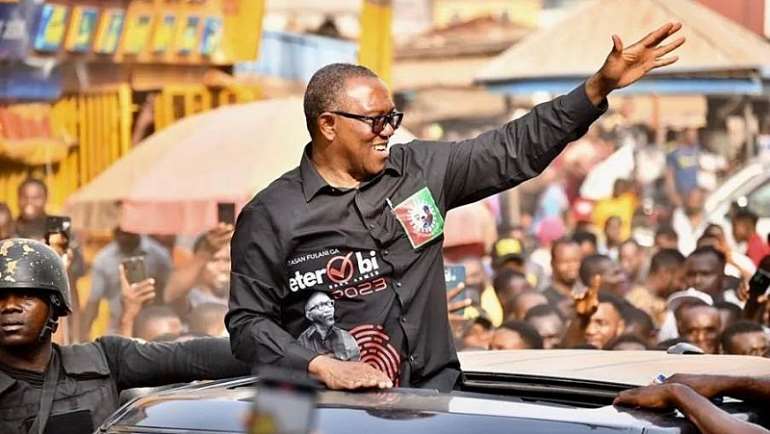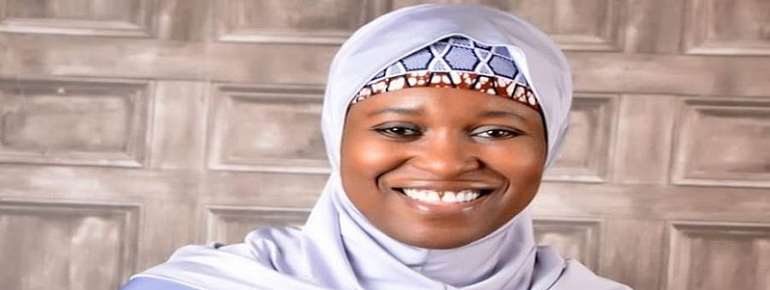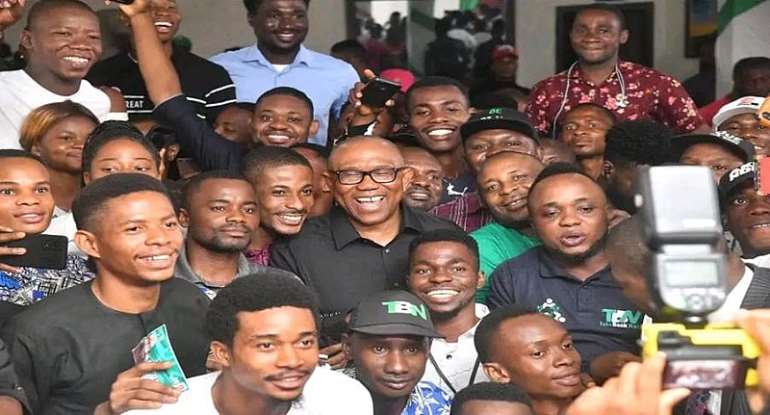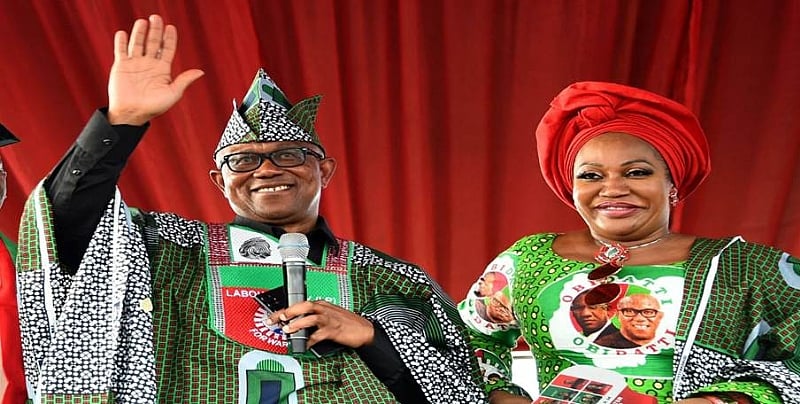Today, as the world commemorates Workers’ Day, celebrating the strength, resilience, and significance of the labour force, Nigeria finds itself at critical crossroads. While workers in other nations march forward with clarity of purpose, the power of solidarity and faith in a more meaningful future, Nigerian workers are caught in a web of despair, betrayal, and malgovernance. Even the one political party that claims its root in the working class—the Labour Party—has been plagued by internal strife, factional disputes, and ideological confusion. But amidst the chaos, there stands one man who still holds the imagination of Nigerian youths and the working population. Peter Obi.
As the 2027 general elections approach, it has become abundantly clear that Obi must begin, today, to prepare seriously for what may be Nigeria’s most defining election. He must rise above the fray, and chart a clear, practical and people-driven path to victory—not for himself, but for millions of Nigerians who have placed their fate and trust in him.
Peter Obi’s consistent message of frugality, prudence, transparency, and purpose-driven governance resonated deeply with Nigerians during the 2023 elections. His “Obidient” Movement, largely youth-led, sent a strong message to the political establishment: Nigerians are hungry for real change. Yet, good intentions are never enough in politics. And it is pretty clear that Obi recognizes that leadership is not just about popularity or vision—it is more about strategy, about reaching out to your crowd, about resilience.
The internal conflicts in the Labour Party were unfortunate but they were not entirely unexpected. Any political movement that seeks to disrupt entrenched interests will face resistance, both from without and within. Peter Obi must not allow the Labour Party to disintegrate. He must now display political maturity by reaching out to factions, healing wounds, uniting the party leadership, and restructuring the party for effectiveness. He must work with social crusaders like Aisha Yesufu, party veterans, trade union leaders, and civil society actors to build a united and credible Labour Party that is rooted in the realities of Nigerian workers and the aspirations of Nigerian youths.
Nigeria’s youth population remains his most powerful political force. Over 70% of Nigeria’s population is under the age of 35. They are educated, frustrated, unemployed, and angry. Yet, they are also creative, energetic, and optimistic when inspired. Peter Obi must reach out to them—not just online, but offline. He must travel across Nigeria’s 36 states, visiting secondary schools, universities, NYSC camps, and urban neighbourhoods. He must listen to them, speak their language, and help them believe again in the power of their votes.

A campaign that is built on grassroots education, voter registration, civic literacy, and local empowerment can shift the dynamics of Nigerian politics. Students, young professionals, artisans, tech innovators, and the likes are the people who powered the 2023 Obi campaign. They must now be reorganized, retrained, and equipped to serve as community mobilizers in every ward, local government, and state.
In a country where entertainment shapes narratives and perceptions, Nollywood holds untapped political power. Nigeria’s film industry is the second-largest in the world in terms of output, and its stars have millions of devoted fans. Yet, the industry has often been overlooked in national discourse and development. Peter Obi must recognize the strategic importance of the creative industry—not just as a tool for soft power and image building, but as a partner in political messaging, grassroots mobilization, and national development. By engaging key Nollywood stakeholders, organizing policy dialogues with producers, directors, and actors, and articulating clear policy plans for supporting the arts, Obi can tap into a powerful community that shapes minds and moves hearts. In 2027, Nollywood must not be on the sidelines; it must be on the frontlines of change, and Peter Obi should see to this.
Across Nigeria, town unions remain the most trusted and effective grassroots structures. In many states in Nigeria, town unions are the bedrock of development, dispute resolution, and community mobilization. Peter Obi must work through these unions, state by state, to reconnect with the people, especially in rural areas. This involves more than political campaigning. It means holding town hall meetings, understanding local needs, and empowering union leaders to speak on governance issues. Town unions can become platforms for voter education, security monitoring, and development collaboration. A candidate who understands and respects local authority will earn enduring loyalty from them.

Aisha Yesufu: Crusader for Nigerian Youths
Above everything else, the Labour Party cannot ignore its ideological foundation. Workers are the soul of the party, and their unions must not be treated as just voting blocs but as co-architects of governance. From the Nigerian Labour Congress (NLC) to the Trade Union Congress (TUC), from academic unions to industrial ones, Peter Obi must actively court their support, not just for votes, but for long-term policy dialogue and governance input. Offering trade unions a stake in governance—such as nominating trusted union leaders to positions like Minister of Employment, Minister of Education, and Minister of Health—will send a clear message: this is a government for and by the workers. The time has come for Peter Obi and Nigerians who believe in him to build a true Labour government in both form and substance.
For every honest Nigerian, it is important to acknowledge that since independence in 1960, no person of Igbo origin has occupied the office of Executive President of Nigeria. The North has ruled for over 45 years. The West has ruled for 15. The South-South has had a brief stint. The East, however, remains shut out. In the interest of justice, equity, and national cohesion, Nigerians must consider giving the East a chance, not out of pity or tokenism, but out of principle. Nigeria cannot become one united nation when an entire region remains systemically excluded from the highest office in the land. Peter Obi, as a technocrat, entrepreneur, former governor, and disciplined public servant, represents the best of what the East can offer. His record in Anambra State—where he drastically cut governance waste, improved education, and left a surplus in the state coffers—sets him apart.
But more importantly, Obi represents a break from the politics of entitlement. He does not come with the baggage of ethnic chauvinism, regional arrogance, or political god-fatherism. He has shown a willingness to work with people from every region, tribe, and religion. Nigerians must now reflect: what if the East does it better? What if this is our chance to build a truly inclusive country? That is not supposed to frighten anyone.
Nigeria’s political elite have for too long treated power as an end in itself—something to be acquired, held, and exploited. The result is a country where leaders steal public funds, enrich their families and cronies, and leave the people poorer than when they came into public office.

Peter Obi with Akwa Ibom youths
Peter Obi must continue to articulate and embody the new, reigning brand of politics: the politics of service delivery as opposed to the politics of power. His campaign must emphasize issue-based engagement, policy depth, and deliverables. Nigerians must be made to understand that politics is not about who gets what, but about who can serve the Nigerian community. Therefore, Obi must unveil a new social contract with Nigerians—one that commits to the protection of lives and property, reduction of poverty, creation of jobs, fixing infrastructure, and eliminating waste. He must show how every kobo saved from corruption will go into building schools, hospitals, roads, and energy systems. And he must promise to hold himself accountable.
Peter Obi must also understand that while he may be the face of the Movement, he is not the Movement itself. The Movement must be the millions of Nigerians who want change. It will be the students in their schools and colleges, the traders in the markets, the nurses in the hospitals, and the teachers in the classrooms. They are the ones who must be empowered, inspired, and trusted to lead the change from the ground up. He must train leaders, not just mobilizers. He must raise voices, not just echo chambers. The dream of a better Nigeria cannot rest on one man’s shoulders—it must rest on the shoulders of a generation.
The 2027 election may seem far away, but in politics, four years is a short time. So, the real work must begin now. Voter registration must begin now. Party restructuring must happen now. Grassroots education must be initiated now. Alliances must be formed now. If Peter Obi waits, he will lose the momentum and risk being overtaken by more aggressive, better-funded, and more entrenched politicians. “A stitch in time saves nine,” our people say. For Nigeria, that stitch is urgent. Every day lost to complacency is a day given to those who seek to keep Nigeria in darkness for their own selfish ends.
Again, Peter Obi must start today to prepare seriously for 2027. He must unite the Labour Party, engage youths in every state across the country, parley with the town unions, partner seriously with the trade unions, and collaborate with Nollywood. He must build a national coalition that cuts across ethnicity, religion, and region. He must carry the banner of justice, equity, and accountability. And above all, Nigerians must give him the chance—not simply for the sake of the east, but more importantly for the sake of the Nation. For once, let us try competence. Let us try discipline. Let us try humility. Let us try vision. Let us try Peter Obi. Let history not be given the opportunity to say that when Nigeria had a chance to change for better, she chose to remain moribund.


